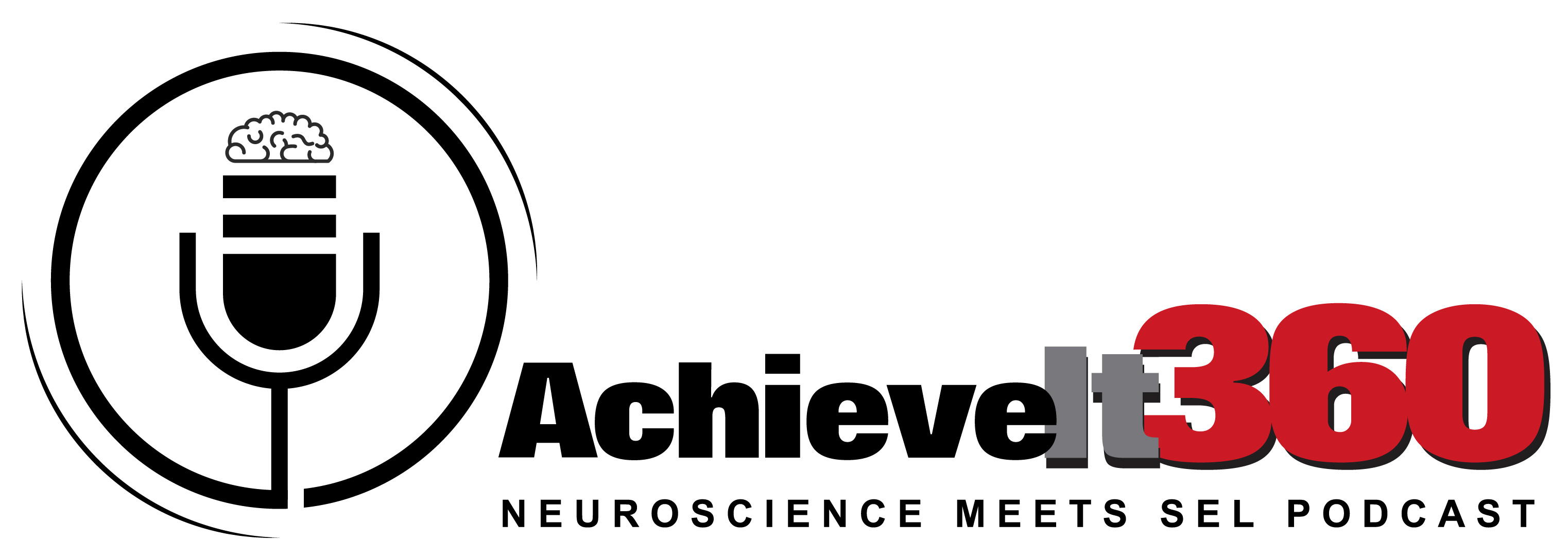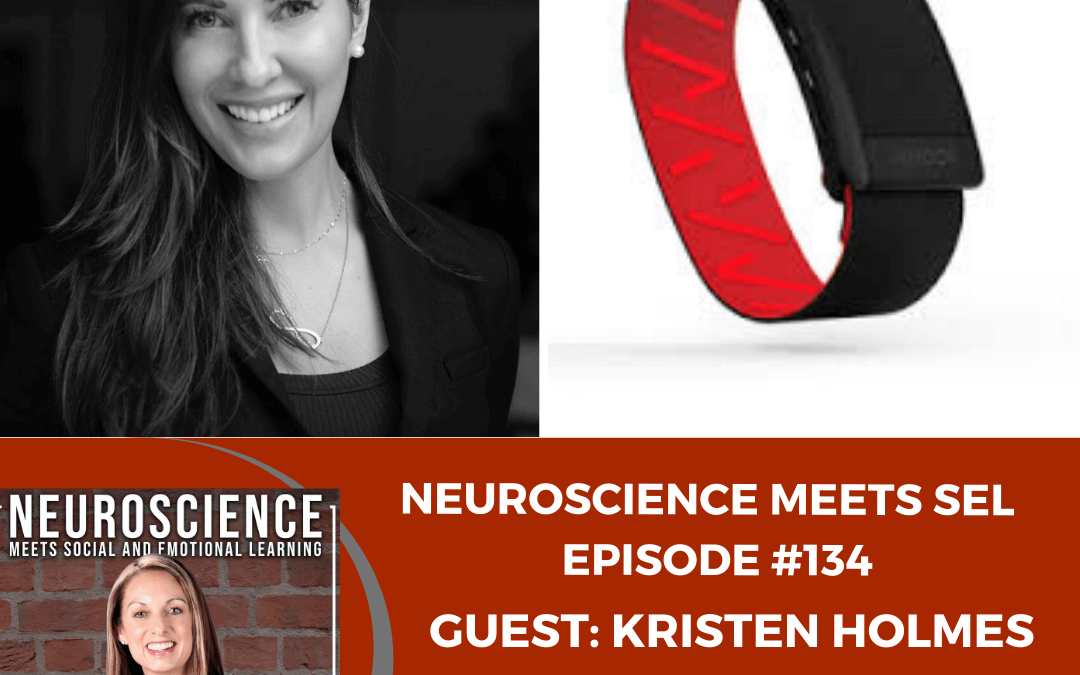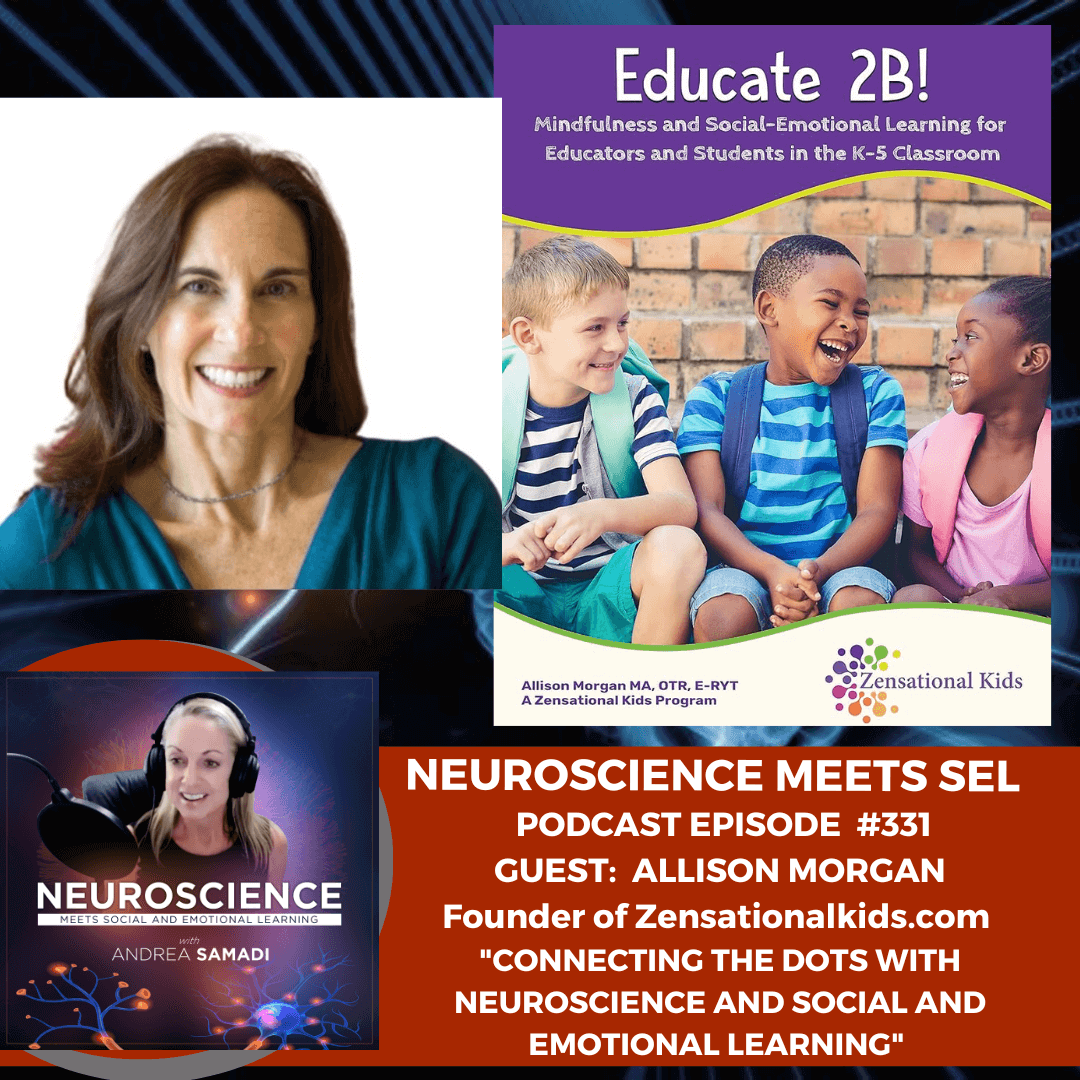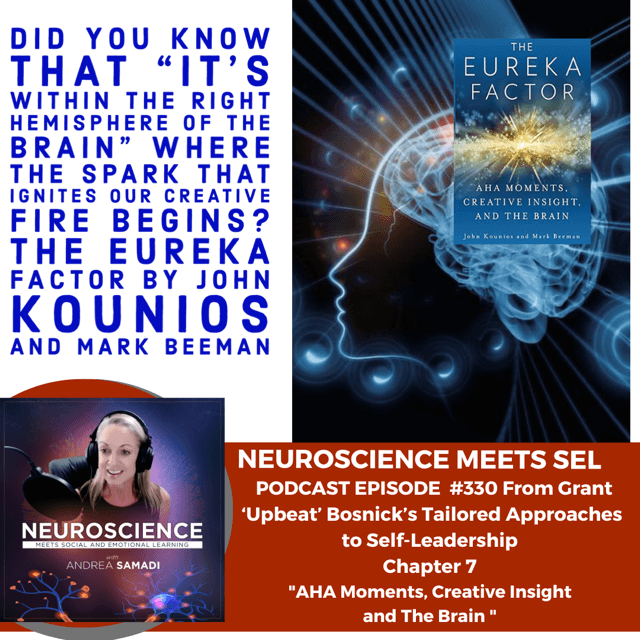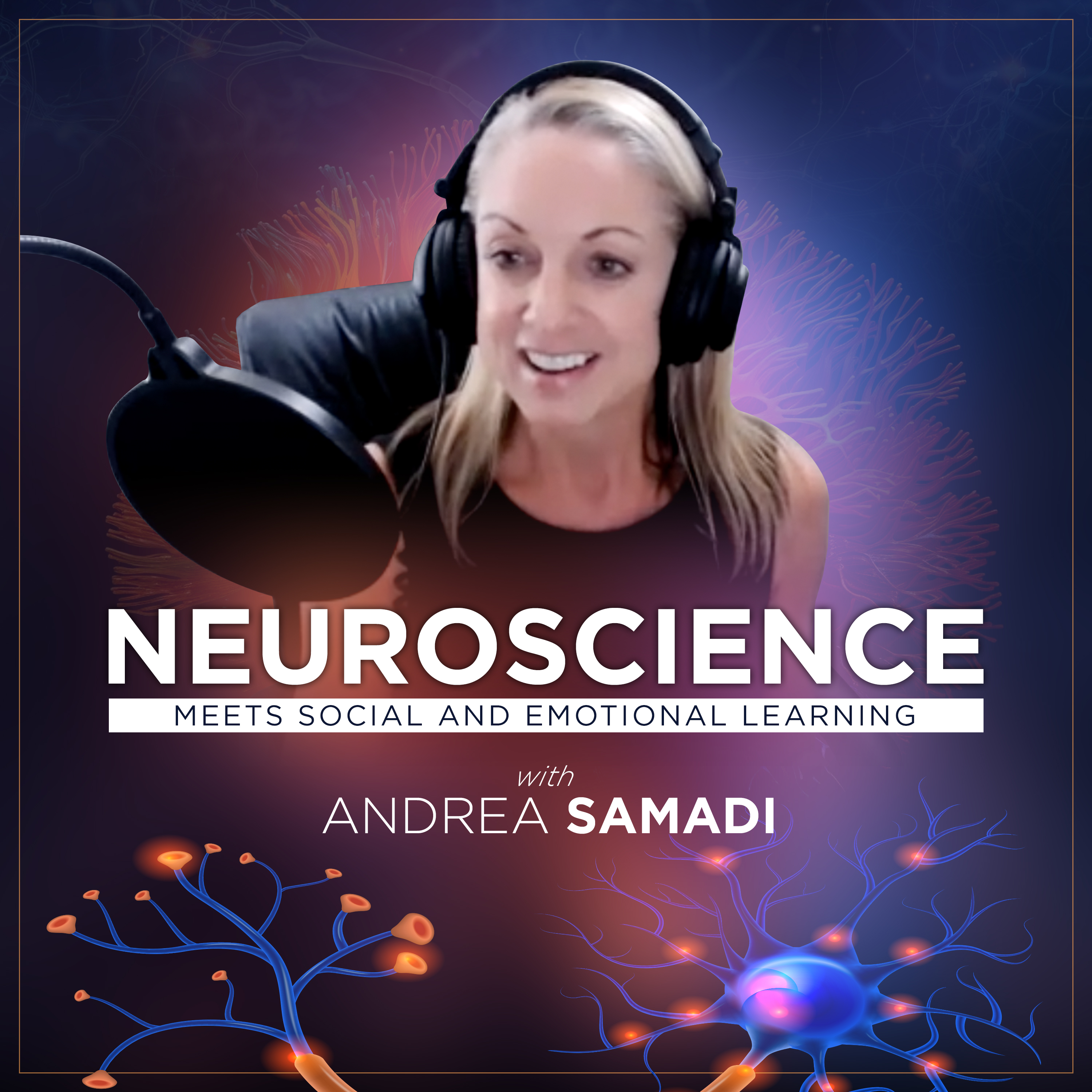Welcome back to the Neuroscience Meets Social and Emotional Learning Podcast, EPISODE #134 with Kristen Holmes[i], the VP of Performance Science with WHOOP,[ii] a wearable personal fitness and health coach that measures sleep, strain and recovery.
Watch the interview on YouTube here.
Welcome back, I’m Andrea Samadi, a former educator who has been fascinated with understanding the science behind high performance strategies in schools, sports, and the workplace for the past 20 years. If you have been listening to our podcast, you will know that we’ve uncovered that if we want to improve our social and emotional skills, and experience success in our work and personal lives, it all begins with an understanding of our brain. We’ve also uncovered the “Top 5 Brain Health and Alzheimer’s Prevention Strategies”[iii] that we covered on EPISODE #87 that took us in the direction of health and wellness, with a focus on sleep, exercise, and nutrition as being important for brain health, and optimizing personal and professional results.
We even went to Dr. Amen’s Clinic in CA for a brain scan to see what we could learn about further optimizing our brain health, and sleep emerged as an area of weakness for me, along with some other areas we are still working on optimizing.
The powerful part of hosting this podcast, is that as I am interviewing guests, and learning, sharing their advice, I’m learning and implementing these ideas myself, as I share them with you. When I was introduced to Kelly Roman, from Fisher Wallace Laboratories, with his wearable medical device to help improve sleep, while reducing anxiety and depression, I immediately jumped at the opportunity to learn more, knowing that I needed help in this area, specifically with sleep. I had no idea how much this device would help me to create more balance in my life, and my review of the Fisher Wallace device, EPISODE #119[iv] has risen to my most downloaded episode, (with over 1250 downloads) beating out EPISODE #68 “The Neuroscience of Personal Change” where I linked Dr. Stephen Covey’s “7 Habits of Highly Effective People” to Neuroscience Strategies. This showed me that while there’s an interest in creating personal change and understanding how to connect practical neuroscience to our daily lives, it shouldn’t come at the expense of our personal health or well-being.
Since May is mental health awareness month, and many experts like Dr. Daniel Amen[v] consider brain health to be at the root of mental health, we will continue to dive deeper into ways to improve our own personal health and well-being.
Which brings me to today’s guest, Kristen Holmes, the VP of Performance Science with WHOOP whose Ph.D. work is in multilevel interactions of stress and circadian behavior[vi]. I first came across Kristen while researching Heart Rate Variability for EPISODE #125[vii] where I started to see how important heart rate variability was for tracking health, recovery and resilience. I found the WHOOP Podcast[viii] hosted by Will Ahmed and featuring Kristen Holmes and Emily Capodilupo, and I was captivated with what I learned.
So captivated that I decided to join the WHOOP community[ix] which means that I can use the device for the amount of time I want to be a member (I joined for a year—but can’t imagine giving this tool up after just a month of use) and wanted to ask Kristen to come on the podcast to help me to further explore the benefits of using this device that appears to have been built with pro athletes in mind.
I’m looking forward to learning and sharing the benefits of the WHOOP device, and diving into what I have uncovered after just one month of measuring my sleep, heart rate variability, daily strain and recovery.
Welcome Kristen, thank you for being so quick to agree to come on this podcast to help me to learn more about the data using the WHOOP device.
Q1: When I look at the reviews on your website, I see a lot of pro athletes using WHOOP, like Justin Thomas (Pro Golfer), Kate Courtney (Mountain Bike World Champion) and Sue Bird (3x WNBA Champion, 4x Olympic Gold Medalist) holding up their arms, showing their WHOOP and explaining how important it is for their training. It was during one of my interviews, EPISODE #96[x] with Dr. Daniel Stickler, a former vascular surgeon whose built a career helping others to achieve what he calls “limitless peak performance” where I first saw someone hold up their arm and tell me “I measure everything.” After this interview I looked up this device to learn more, and then came across it again while researching the importance of measuring heart rate variability. Can you share in a nutshell why someone like me, who is not a pro athlete, but someone passionate about sharing health and wellness strategies, could benefit from using a WHOOP device?
Q2: I honestly was so moved by the power of measuring heart rate variability after I did that podcast that dove deeper into understanding this measurement on rest, recovery and resilience, that I joined just to see this one measure. I had to be patient, which I’m not, and wait a few days for the numbers to calibrate. I did see the email with Patrick Mahomes’ data[xi] that “quantified the strain of an NFL season” (Van Deusen) that was eye-opening. Can you explain what we should expect from our first 30 days measuring our data[xii], and maybe what’s the potential of measuring for a year if we are not pro athletes like Patrick Mahomes?
Q3: Can we look at my data and you tell me what you see? I know it says it loud and clear, but is there anything you notice? If you were my personal coach, what would you tell me (constructive feedback to help me to improve)? (I would like to have the monthly assessment for this that should unlock the day of the interview).
Q4: What is your vision for WHOOP, and what have you learned most from your work at VP of Performance Science?
I want to thank you very much Kristen, for your time to speak with me and dive a bit deeper into the WHOOP device for personalized training, sleep and recovery insights. If people want to learn more about coming on as a member, I have the website in the show notes, and do you have any final thoughts? Thank you!
RESOURCES:
https://www.bostonmagazine.com/health/2017/04/02/charles-czeisler-sleep-doctor/
The Impact of Resonance Frequency Breathing on Measures of Heart Rate Variability, Blood Pressure, and Mood by Patrick R Steffen, Tara Austin, Andrea DeBarros, and Tracy Brown August 25, 2017 https://www.frontiersin.org/articles/10.3389/fpubh.2017.00222/full?source=post_page—————————
REFERENCES:
[i] https://www.linkedin.com/in/kristen-holmes-she-her-b9b44647/
[iii] Neuroscience Meets Social and Emotional Learning Podcast EPISODE #87 “Top 5 Brain Health and Alzheimer’s Prevention Strategies” https://andreasamadi.podbean.com/e/do-you-know-the-top-5-brain-health-and-alzheimers-prevention-strategies-with-andrea-samadi/
[iv] Neuroscience Meets Social and Emotional Learning Podcast EPISODE #119 “Personal Review of the Fisher Wallace Medical Device for Anxiety, Depression and Sleep Management” https://andreasamadi.podbean.com/e/personal-review-of-the-fisher-wallace-wearable-medical-device-for-anxiety-depression-and-sleepstress-management/
[v] Neuroscience Meets Social and Emotional Learning Podcast EPISODE #128 Review of Dr. Daniel Amen’s Book, “The End of Mental Illness” https://andreasamadi.podbean.com/e/review-of-dr-daniel-amens-the-end-of-mental-illness-6-steps-for-improved-brain-and-mental-health/
[vi] Let there be circadian light Feb.20, 2020 University of Washington Health Sciences https://www.sciencedaily.com/releases/2020/02/200220141731.htm
[vii] Neuroscience Meets Social and Emotional Learning Podcast EPISODE #125 “What is Heart Rate Variability and Why is it Important for Tracking Health, Recovery and Resilience” https://andreasamadi.podbean.com/e/what-is-hrv-and-why-is-it-important-for-tracking-health-recovery-and-resilience-with-andrea-samadi/
[viii] Whoop Podcast The Locker with Will Ahmed EPSIODE #29 Kristen Holmes and Emily Capodilupo on HRV https://www.whoop.com/thelocker/podcast-29-heart-rate-variability-hrv/
[x] Neuroscience Meets Social and Emotional Learning Podcast Episode #96 with Dr. Daniel Stickler on “Expanding Awareness for Limitless Peak Performance, Health, Longevity and Intelligence.” https://andreasamadi.podbean.com/e/dr-daniel-stickler-on-expanding-awareness-for-limitless-peak-performance-health-longevity-and-intelligence/
[xi] Patrick Mahomes’ WHOOP Data: Quantifying the Strain of an NFL Season by Mark Van Deusen https://www.whoop.com/thelocker/patrick-mahomes-heart-rate-strain-data/?utm_source=members&utm_campaign=the-locker&utm_medium=email&utm_content=patrick-mahomes-heart-rate-strain-data&_ke=eyJrbF9jb21wYW55X2lkIjogIlBBQm5XSyIsICJrbF9lbWFpbCI6ICJhbmRyZWFAYWNoaWV2ZWl0MzYwLmNvbSJ9
[xii] https://support.whoop.com/hc/en-us/articles/360057137353-What-to-Expect-in-Your-First-30-Days
Podcast: Play in new window | Download
Subscribe: Apple Podcasts | RSS
